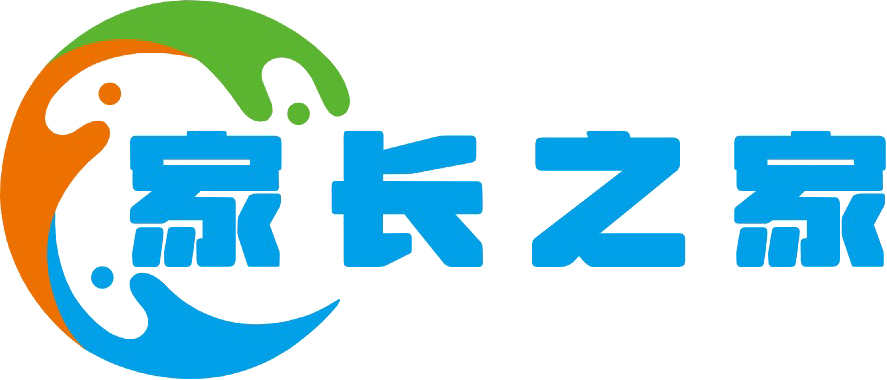【中考语法】宾语从句和冠词用法

宾语从句 宾语从句就是一个句子做为复合句中主句谓语动词的宾语。
I believe that he's a policeman.
这样的句子就是that引导的宾语从句。
简单地说,宾语从句是由that或者疑问词引导,充当复合句中主句谓语的宾语的一个完整的句子。
由于连接手段的不同,宾语从句可分为:
that引导的宾语从句
关系代词wh-引导的宾语从句
关系副词wh-或者if /whether引导的宾语从句几种形式。
针对宾语从句部分的考试,考察要点主要有这三个方面:
(1)主句和从句之间连接词的选择
(2)主句和从句之间时态的选择
(3)从句中句子的语言顺序的确定
简单总结就是:引导词,时态、从句语序。
一、引导词
宾语从句的引导词。
宾语从句是主从复合句中的具体形式。
它由两部分构成:主句+宾语从句。而在主句和宾语从句之间需要引导词来连接。也就是:主句+引导词+宾语从句。
引导词主要有以下三种情况:
第一,如果宾语从句是陈述句概念,用引导词that,在口语中可以省略。
第二,如果宾语从句表述一般疑问句的语义,引导词就用if或whether。
第三种情况,宾语从句表述特殊疑问句的语义,引导词用特殊疑问词。
补充:
一般情况下,whether和if可以互用,但有些情况例外。
a.当从句作介词的宾于是只用whether不用if
eg, We are talking about whether we'll go on the picnic.
b.引导词与动词不定式或not连用时,只用whether.
eg, Please let me know what to do next.
Could you tell me whether u go or not?
c. if当如果讲时,引导的是条件状语从句,这时不能用whether.
1.及物动词+that引导宾语从句
I know that he is my uncle.
I believe that it's very hot now.
2.if或者whether引导的宾语从句,其中if和whether翻译为“是否”。
I wonder if/whether they'll get there in time.
We want to know if/whether the school starts.
We doubted wheather that girl could stand the bad weather there.
我们怀疑那个女孩是否能忍受那里糟糕的天气。
3.特殊疑问词引导的宾语从句,这些特殊疑问词包括what、who、why、where 、how等等。
No one can lose what he never had.
人是不会失去他从不曾拥有过的东西。
Wisdom first teaches what is right.
智慧首先教会人什么是正确的。
二、时态
宾语从句的时态
一般来说,英语从句的时态,主要是由主句中谓语动词的时态来决定的。但宾语从句主要有三种情况:
一、主现不限:主句的时态为一般现在时、一般将来时或者是祈使句的时候,从句的时态要根据具体的情况,选用相应的时态,而不受从句的限制。
二、主过从过:如果主句的时态是过去时,那么从句的时态则要用与过去相应的某一时态。
三、客观不变:如果从句表示的是客观真理、自然现象或者是普遍真理的时候,从句的时态要用一般现在时。
宾语从句的时态呼应:宾语从句的时态与主句的时态多数情况下是相呼应的。
(1)主句是一般现在时态或者一般将来时态的时候,从句谓语的时态不受影响,可以是任意时态。
She knows that he is kind.
她知道他是个友善的人。
You will know that he was helpful.
你将会了解他以前是个乐于主人的人。
(2)主句是一般过去时态,从句用对应的表示过去的某种时态,可能是一般过去时态、过去进行时态、过去将来时态、过去完成时态。
He wondered if /whether they would have the meeting next week.
他想知道下周他们是否将有个会议
I asked her what she had done at home.
三、语序
语从句的语序
宾语从句要使用陈述语句,即:连接代词/副词+主语+谓语+其他成分。
Could you please tell me where the supermarket is?
We understood how he was feeling .
我们知道他当时的感受。
四、宾语从句的注意事项
(1)宾语从句中that可以省略
I know you are right.
(2)当宾语从句的内容是真理性的东西,或者“现在”还是事实的情况的时候,尽管主句用到的是过去时态,从句不受主句时态影响,可以用各种时态。
They were taught that earth moves around the sun.
当时就有人教过他们,地球是围绕太阳转的
(3)宾语从句的否定前移
否定前移在宾语从句中出现时,主句的主语是第一人称I或we,同时主句的谓语动词常为think, believe, expect, imagine, suppose等词。表达形式中,否定在主句,实际语义在从句。只不过从句中的否定,移到了主句谓语动词的前面。
例如:
I don't think he is right.
注意:翻译要遵循否定转移的特点,否定在从句;反问时,反问对应从句且用肯定形式。
I don't think Tom will come .
我认为汤姆不会来。
I dont expect that any one will help me .
预计不会有人帮助我
(4)宾语从句的转化
宾语从句的转化实际是把宾语从句的转化为短语或其他从句类型,主要有下面几种情况:
1.主句+宾语从句=主谓+to do sth
2.主句+宾语从句=主+谓+sb/sth+(疑问词)to do sth
3.主句+宾语从句=主+谓+sb/sth+sb/sth
4.主句+宾语从句=主+谓+sb/sth+宾语补足语
5.此外,主句+what宾语从句=主句+定语从句
具体:
1.当主句谓语动词是hope,decide,wish,choose,agree,promise等,且宾语从句的主语与主句主语一致时,宾语从句可简化为不定式结构。
例如:
We decided that we would help him.
→We decided to help him.
2.当主句谓语动词是know,learn,remember,forget,tell等动词,且主句主语与从句主语一致时,宾语从句可简化为“疑问词+不定式”结构。
例如:
She has forgotten how she can open the window.
→She has forgotten how to open the window.
注:当主句谓语动词是tell,ask,show,teach等动词,且后带双宾语,从句主语和间接宾语一致时,宾语从句可简化为“疑问词+不定式”结构。
例如:
Could you tell me how I can get to the station?
→Could you tell me how to get to the station?
3.当主句的谓语动词是order(命令),require(需要)等时,如果主句和从句的主语不一致,宾语从句可简化为“名词(代词)+不定式”结构。
例如:
The headmaster ordered that we should start at once.
→ The headmaster ordered us to start at once.
4.某些动词后的宾语从句,可以用介词加动名词(短语)等其他形式简化。
例如:
He insisted that he should go with us.
→He insisted on going with us.
5.某些动词后面的宾语从句可转化为“宾语+V-ing形式(作宾语补足语)”结构。
例如:
Liu Ping found that there was a wallet lying on the ground.
→ Liu Ping found a wallet lying on the ground.
此外,it做形式主语+宾语从句的结构也可以不定式(短语)来简化。
It seemed/seems that从句→It seemed/seems to do .
例如:
It seemed that the boys were going to win.
→The boys seemed to win.
I found that it was difficult to learn English well.
→I found it difficult to learn English well.
冠词概述
冠词本身不能单独使用,也没有词义,它用在名词的前面,帮助指明名词的含义。
冠在汉语中是多音字,有“帽子”和“戴帽子”的意思。所以娃们可以把冠词理解为给“名词”戴帽子~
冠词分为不定冠词和定冠词两种。
定冠词the表示名词为特定者,与该名词表示的其他人或事物区别开,可根据实际情况翻译成“这”“那”“这些”“那些”,或不翻译,在可数的单复数名词或不可数名词前面都可以用。
不定冠词a和an仅用在单数可数名词前面,表示“一”的意义,但不强调数目观念,表示名词为不特定者。
零冠词即是名词前面没有不定冠词( a、an )、定冠词( the ),也没有其他限定词的现象。
a和an的区别
不定冠词有a和an两种形式,a用于辅音(不是辅音字母)开头的词前,an用于元音(不是元音字母)开头的词前。
例如:a boy,a university;an hour,anapple,an umbrella
不定冠词的用法
1.泛指某一类人、事或物,这是不定冠词a/an的基本用法。
A knife is a tool for cutting with.
Mr. Smith is an engineer.
2.泛指某人或某物,但不具体说明何人或何物。
A Mr. Liis waiting for you.
一位李先生在等你。
3.表示数量,有“一”的意思,但数的概念没有one强烈。
There isa book on the desk.
书桌上有一本书。
4.表示“每一”,相当于every.
I go to school five days a week.我一周上五天课。
5.用在序数词前,表示“又一”,“再一”。
I have three books. I want to buy a fourth one.
我已经有三本书,我想买第四本。
6.用在某些固定词组中
定冠词的用法
1.特指某(些)人或某(些)物,这是定冠词的基本用法。
Thegirlunderthetreeismysister.
树下的女孩是我妹妹。
2.指谈话双方都知道的人或事物。
Openthewindow,please.请打开窗户。
3.指上文已经提到的人或事物。
I have a car.Thecar is red.
我有一辆小汽车,它是红色的。
4.指世界上独一无二的事物。
Which is bigger,thesun ortheearth?
哪一个大,太阳还是地球?
5.用在序数词,形容词最高级前。
Thefirst lesson istheeasiest one in this book.
第一课是这本书最简单的一课。
6.用在由普通名词构成的专有名词前。
theGreat Wall 长城,theUnited States美国
7.用在某些形容词前,表示某一类人。
thepoor穷人,theblind盲人
8用在姓氏复数形式前,表示“全家人”或“夫妻俩”。
theGreens 格林一家或格林夫妻俩
9.用在方位词前。
ontheleft在左边,inthemiddle of在中间
10.用在乐器名称前。
She playsthepiano every day.她每天弹钢琴。
11.用在表示海洋,河流,山脉,群岛及国家和党派等名词前。
theblack sea黑海,theyangzi river长江
12.用在某些固定词组中
零冠词的用法
1.在专有名词和不可数名词前。
Class two二班,Tian’anmen square天安门广场,water水
2.可数名词前已有作定语的物主代词(my,your,his,her等)、指示代词(this/these,that/those)、不定代词(some,any等)及所有格限制时。
my book(正);my the book(误)
3.复数名词表示一类人或事物时。
They are teachers.他们是老师。
Tigers like meat.老虎喜欢吃肉
4.在星期,月份,季节,节日前。
on sunday在周日,inmarch在三月,in spring在春天,on women’s day在妇女节
(特例:如果月份,季节等被一个限定性定语修饰时,则要加定冠词:he joined the army in the spring of 1982.他在1982年春季参军。)
5.在称呼语或表示头衔的名词前。
Tom汤姆,mum妈妈
6.在学科名称、三餐饭和球类运动名称前。
I have lunch atschool every day.
特例:当football,basketball指具体的某个球时,其前可以用冠词:i can see a football.我可以看到一只足球。where’s the football?那只足球在哪儿?(指足球,并非“球类运动”)
7.在表特定的公园,街道,车站,桥,学校等之前。
No.25middle school
8.某些固定词组中不用冠词。
(1)与by连用的交通工具名称前:
by bus乘公共汽车;by car乘汽车;by bike骑/坐自行车
by train乘火车;by air/plane乘飞机;by sea/ship乘船
但take a bus,in a boat,on the bike前需用冠词
(2)名词词组:
day and night日日夜夜;brother and sister兄弟姐妹
hour after hour时时刻刻;here and there到处
(3)介词词组:
at home在家;in surprise惊奇地;at noon在中午
on foot步行;at night在晚上;on duty值日
at work在工作;on time准时;for example例如
in class在上课;on show展览;in bed在床上
(4)go短语:
go home回家;go to bed上床睡觉;
go to school去上学;go to work去上班;
go shopping/swimming/boating/fishing
去买东西/游泳/划船/钓鱼
用与不用冠词的差异
in hospital住院/in the hospital在医院里
go to sea出海/go to the sea去海边
on earth究竟/on the earth在地球上,在世上
in front of在……(外部的)前面/in the front of在……(内部的)前面
take place发生/take the place(of)代替
at table进餐/at the table在桌子旁
by sea乘船/by the sea在海边
in future从今以后,将来/in the future未来
go to school(church…)上学(做礼拜…)/go to the school(church…)到学校(教堂…)去
on horseback骑着马/on the horseback在马背上
two of us我们当中的两人/the two of us我们两人(共计两人)
out of question毫无疑问/out of the question不可能的,办不到的
next year明年/the next year 第二年
a teacher and writer一位教师兼作家(一个人)/a teacher and awriter一位教师和一位作家(两个人)
同步练习
1.There is _____ apple on the desk.
a. a b .the c. an d./
2.The girl under ____ tree is my sister.
a. a b .the c .an d./
3.Mary is from _____ US.
a. a b. the c. an d./
4.He met _____ friend of his on the road.
a. a b .the c .an d./
5.Mr. black will go back to england______.
a .by air b .by a plane c. by trains d. at a train
a. /, / b ./, the c .the, / d. the, the
7.There is______“h” in the word “hour”, but______“h”doesn’t make a sound.
a. a, a b. a, the c. the, ,an d .an. the
8.I’m going to see my mother. she is ill ____.
a. in hospital b. in the hospital c. in a hospital d. at a hospital
9. We have three meals______day. we have breakfast at 6:30 in______morning every day.
a. the, the, the b. the, /, the c. a, /, the d .a, the, the
10.——This is______film i’ve told you about several times.
——It’s great. i’ve never seen ___ more moving one.
a. a, a b. the, the c. the, a d. a, the
11.——Tina,could you please play__ piano for me while I’m singing?
——With pleasure.
a .a b. an c. the d. /
12.I want to try again. please give me______third chance again.
a .a b. the c. an d. /
13. ——What’s the matter with you?
——I caught______bad cold and had to stay in__bed.
a. a; / b. a; the c. a; a d. the; the
14.______sun is shining brightly.
a. A b. An c. The d. /
15. Swimming is______in summer.
a. a great fun b. great fun c. great funs d. great a fun
参考答案:
1-5 cbbaa
6-10 adacc
11-15 caacb

② 知名机构人大附早早培(zzp)学前集训队-数学/神测和动手
① 华杯赛/华数之星真题试卷-解析版 附详细解题过程
② 迎春杯/青少年创新能力测试-解析版 附详细解题过程
③ 希望杯/希望数学-解析版 附详细解题过程
④ YMO世界青少年奥林匹克数学竞赛-解析版 附详细解题过程
⑦ 美国数学大联盟杯-解析版 附详细解题过程
⑧ 鹏程杯-解析版 附详细解题过程
①《人大附中早培海选必刷》《八中海选训练与解析》电子版教材
② 八少八素、人大附早培神测千题(上 下册)
③ 人大附、八中海选神测万题练习册及答案解析.pdf
④ 八少八素试题分享&人大附早培班试题分享+神测复习资料
② 朗思 iESOL 备考资料
北京高中:
① 北京高考英语听力机考模拟试卷及答案、听力原文、音频
添加 家长论坛微信



全部 0条评论